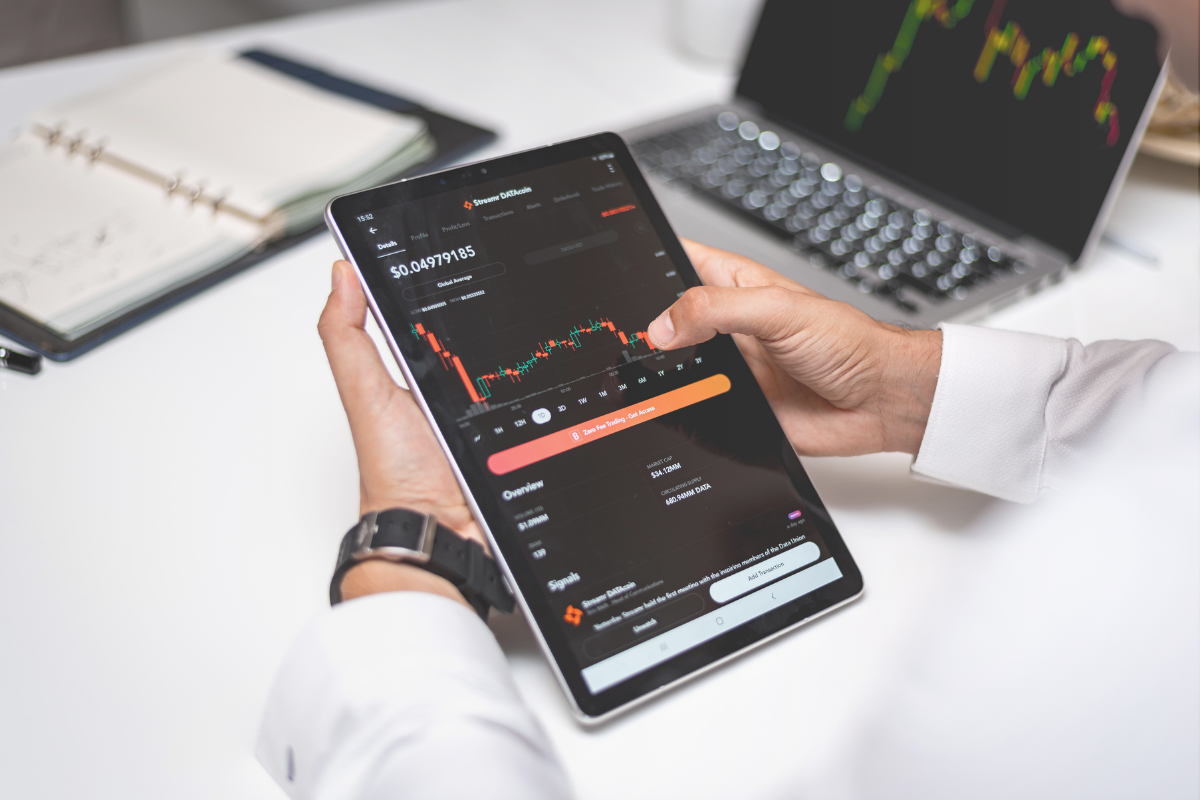Please allow us to collect data about how you use our website. We will use it to improve our website, make your browsing experience and our business decisions better. Learn more Learn More

What is Cryptocurrency Futures Trading?
Cryptocurrency futures trading is a financial derivative that allows traders to speculate on the future price movements of cryptocurrencies without actually owning the underlying assets. It involves entering into a contract to buy or sell a specific cryptocurrency at a predetermined price and date in the future.
How Does Cryptocurrency Futures Trading Work?
In cryptocurrency futures trading, traders enter into an agreement to buy or sell a specific amount of a cryptocurrency at a future date. The agreed-upon price is known as the "futures price." The contract specifies the quantity of the cryptocurrency, the expiration date, and other relevant terms.
The main purpose of cryptocurrency futures trading is to provide traders with the opportunity to profit from price fluctuations in the cryptocurrency market. Traders can take both long (buy) and short (sell) positions, depending on their market expectations.
Key Features of Cryptocurrency Futures Trading
Leverage: One of the key features of cryptocurrency futures trading is the ability to trade with leverage. Leverage allows traders to control a larger position with a smaller amount of capital. For example, with 10x leverage, a trader can control $10,000 worth of cryptocurrency with just $1,000 of capital. While leverage can amplify profits, it also increases the risk of losses.
Margin: Margin refers to the initial deposit required to open a futures position. It is a percentage of the total value of the contract. The margin acts as collateral and protects the exchange or broker from potential losses. Traders must maintain a minimum margin level to keep their positions open.
Settlement: Cryptocurrency futures contracts can be settled in two ways: physically or cash-settled. In physical settlement, the trader receives the actual cryptocurrency upon contract expiration. In cash settlement, the trader receives the equivalent value of the cryptocurrency in cash. The settlement method depends on the exchange or platform where the futures contract is traded.
Risk Management: Risk management is crucial in cryptocurrency futures trading. Traders should set stop-loss orders to limit potential losses and take-profit orders to secure profits. Additionally, it is important to manage leverage carefully and avoid overexposure to the market.
Benefits of Cryptocurrency Futures Trading
Speculation and Hedging: Cryptocurrency futures trading provides an avenue for traders to speculate on the price movements of cryptocurrencies. Traders can profit from both rising and falling markets by taking long or short positions. Additionally, futures contracts can be used as a hedging tool to mitigate the risk of price volatility.
Liquidity: Cryptocurrency futures markets are often highly liquid, allowing traders to enter and exit positions quickly. This liquidity ensures that traders can execute their trades at desired prices without significant slippage.
Diversification: Cryptocurrency futures trading allows traders to diversify their investment portfolios. By trading futures contracts on different cryptocurrencies, traders can spread their risk and potentially benefit from various market trends.
Risks of Cryptocurrency Futures Trading:
Volatility: Cryptocurrencies are known for their high volatility, and futures trading magnifies this volatility due to leverage. Price swings can result in significant gains or losses, making risk management crucial.
Leverage Risk: While leverage can amplify profits, it also amplifies losses. Traders should be aware of the risks associated with trading on margin and use leverage responsibly.
Regulatory and Counterparty Risks: Cryptocurrency futures trading is subject to regulatory risks, as governments around the world are still developing frameworks for cryptocurrency derivatives. Additionally, traders should consider the counterparty risk associated with the exchange or platform where they trade futures contracts.
Conclusion
Cryptocurrency futures trading offers traders the opportunity to profit from the price movements of cryptocurrencies without owning the underlying assets. It provides leverage, liquidity, and diversification benefits, but it also carries risks such as volatility and leverage risk. Traders should approach futures trading with caution, conduct thorough research, and develop a solid risk management strategy.